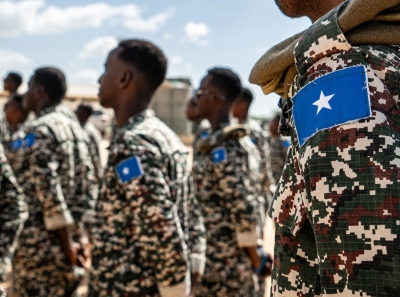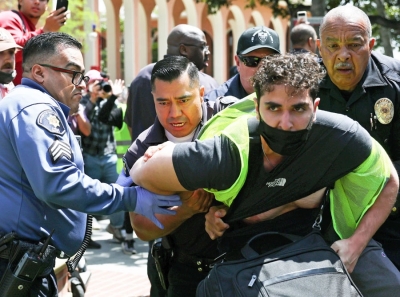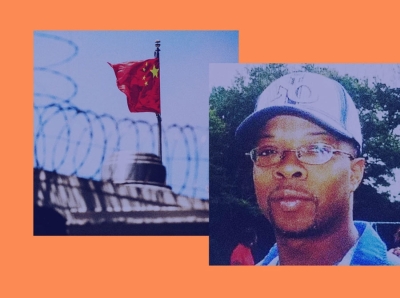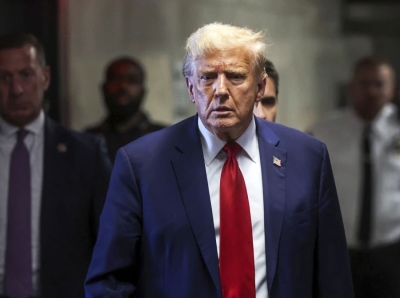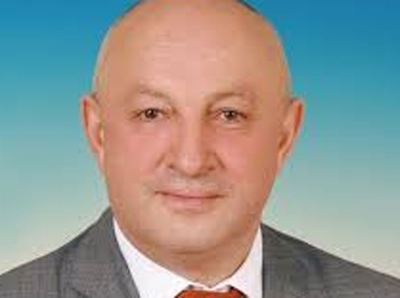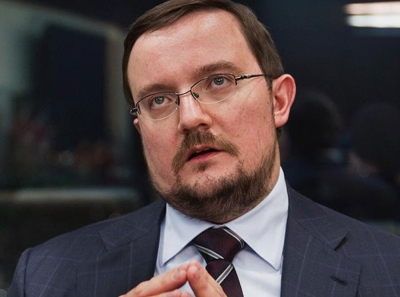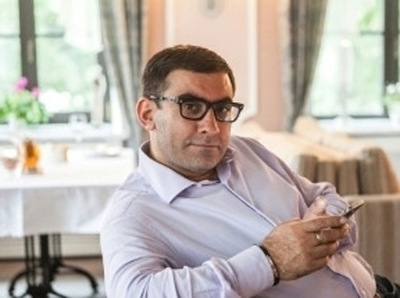The Hague: Israel rejects genocide charges
Israel has defended itself before the International Court of Justice in The Hague against charges brought by South Africa that it is committing genocide against the Palestinians in its war against the radical Islamist Hamas organisation in the Gaza Strip. Israel’s defence stated that the military action in the Gaza Strip constitutes self-defence against the terrorist Hamas, and that the suffering of civilians was part of the latter’s strategy.
The best actor for the role
Sabah believes it knows why South Africa has been the only state to bring legal proceedings against Israel:
“South Africa, which was ruled by an apartheid regime based on racial discrimination until the 1990s, is not an actor that is viewed with suspicion by the West, like for example Turkey. South Africa, which has received the tacit approval of the West due to these historical and political factors, is also explicitly supported by Russia and China as a member of the Brics. Given all these strategic dynamics, there could be no more appropriate actor in the world than South Africa to file a genocide lawsuit against Israel.”
Subtle poison
The charges are fuelling antisemitism, Corriere della Sera complains:
“The trial will neither have legal force nor will it have any tangent effect in the war zone. ... But it will definitely lead to a new wave of resentment against Jews. Not just against Israel’s soldiers in the Gaza Strip but against all members of the Jewish faith around the world. And that is the greatest danger for those of us watching the conflict from afar. A feeling that has always run through our societies and manifests itself like a subtle poison whenever there is a major crisis in the Middle East. ... Geopolitics acts as a detonator for a substrate rooted in centuries-old platitudes (such as the ‘evil God of the Jews’ as opposed to the ‘merciful God of the Gospels’).”
Don’t leave Israel in the lurch
Germany must follow its words with deeds, Der Tagesspiegel urges:
“The value of this friendship, which Germany repeatedly emphasises and which, historically seen, is a gift, will now be put to the test. In this case, it means that Germany must officially and formally side with Israel before the ICJ and join the proceedings as a third state. The German government is called upon to intervene accordingly. After all, the accusations levelled by South Africa are unfounded. Israel must not be left alone with its defence.”
Pointless proceedings
Echo24 takes a clear stance:
“The whole thing is a pointless spectacle. Not only because the accusation of genocide against Israel is patently absurd, but also because the International Court of Justice can do nothing about the war in Gaza. The court is there to decide disputes between states. It has no power to prosecute individuals. This is the responsibility of the International Criminal Court, also based in The Hague. South Africa is putting on an antisemitic show.”
Justice not silent in times of war
The proceedings can be seen as a positive development, columnist Pierre Haski writes on the website of radio station France Inter:
“The aim [of the lawsuit] is not to change the reality of the war, but to obtain a ruling that assigns justice and morality to one camp. This is important in terms of the battle for public opinion and makes it possible to impose, or destroy, a narrative that justifies military action. ... This is an event that breaks the silence of impunity. ... The jurists have no doubt that Hamas committed war crimes on 7 October. ... But this does not justify the crimes of which they accuse Israel in Gaza. ... So let’s consider it a small step forward that a controversial debate is taking place today before an international court while the weapons talk.”
Challenge accepted
Israel is proving that it is a democracy, La Repubblica explains:
“Israel’s decision to submit to the judgement of the International Court of Justice in The Hague is not only important because of the ruling that results. ... By agreeing to defend itself against the charge of genocide brought by South Africa over the modalities of the war in Gaza, the Jewish state is reminding the world that it is a democracy that recognises the international order and intends to remain part of it. A stance that contrasts with that of autocracies like Vladimir Putin’s Russia, which refuse to take legal responsibility for their actions and aim to undermine the international order.”
An instrumentalised term
The accusation of genocide is increasingly being misused for political purposes, criticises Der Standard:
“There are a number of things that could be criticised about Israel’s actions in the Gaza Strip. ... The accusation of genocide on the other hand, is completely unfounded. ... The proceedings before the ICJ are an example of how the concept of genocide, which was established in 1948 in the wake of the Holocaust as the most serious international crime, is increasingly degenerating into a commonplace accusation. Wherever violence is used that affects a particular ethnic group, the accusation of genocide is raised — and the word is politically instrumentalised.”
First comes the ruling on jurisdiction
Adevărul explains the procedure:
“Experts in international law say the judges’ task at this point is not to determine whether or not genocide is taking place in Gaza, but whether acts are taking place there that irreparably violate the rights guaranteed by the Genocide Convention. At this stage, the justices can therefore first determine whether it is appropriate for the measures requested by South Africa to be imposed, or whether they have no jurisdiction to hear the case. Only then can the substantive proceedings begin, and with them the evidence-based examination of the allegation of Israeli genocide crimes in Gaza.”
Accused in a dilemma
Israel faces above all great damage to its reputation, De Volkskrant comments:
“The country’s isolation will worsen. If it ignores the judges’ ruling, Israel will confirm the accusation that has already been levelled at it: that it flaunts international law. ... But the fact that Israel has decided to participate in the hearings will make it more difficult for it to brush aside a decision by the judges as irrelevant. Moreover, if the court decides to proceed to trial, the accusation of genocide — and the possibility of a conviction — will hang over Israel like a dark cloud for years to come. In the sense of: guilty until proven otherwise.”
Guarantor of the rule of law comes into play
Israel is sending former Supreme Court judge Aharon Barak, an 87-year-old Holocaust survivor, to the hearing before the International Court of Justice. A clever move, De Telegraaf comments:
“Barak enjoys a high standing in the legal world and can be considered unbiased, precisely because he was put forward by Prime Minister Benjamin Netanyahu. The latter’s government took massive action against Barak last year. The controversial reforms were aimed at dismantling the legal framework that Barak had established as chief justice. ... The Israeli government believes that judges have too much power in their own country, but it is precisely the strong independent judiciary that has regularly prevented international courts from dealing with the situation in Israel and the Palestinian territories in the past.”

